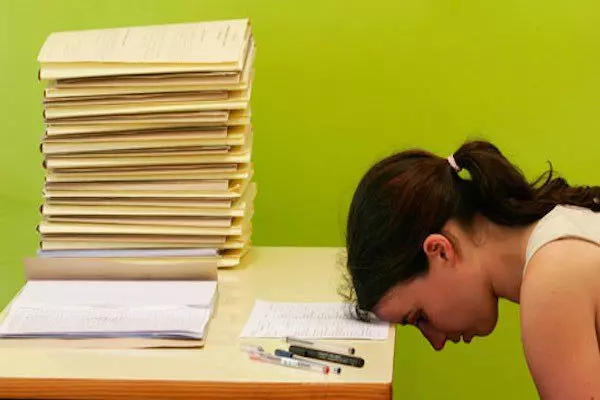
State-wide school closures for an extended amount of time due to a worldwide pandemic is truly unprecedented. Families, school systems, and entire communities are now in a position like we have never known before. Aside from the logistics involving everything from last-minute childcare to methods for providing meals to local FARMS (free and reduced-price meals system) populations, many folks are left wondering about the academic ramifications of these indefinite school closures.
Similar to “summer slide,” when students are known to experience academic regression while out of school for the summer months, these sudden weeks without instruction could undoubtedly pose academic issues for students. Some districts are utilizing online platforms to deliver content digitally to students at home, while others are rushing to provide supplemental course packets that students can complete at their own pace during the extended closure. Whatever the case, families will want to ensure that certain steps are taken so that learning continues, even when school is not in session.
Set up a routine
Many students (and teachers) view this sudden shutdown as an excuse to go into vacation mode. Tempting as that is, stopping everything to “hibernate” at home is ill-advised, even during this time when we have been instructed to practice “social distancing.” Being stuck at home should not necessarily mean that children and teens grow accustomed to day-long Netflix binging in pajamas on the couch. Parents should set the expectation early on that some of this time out of school is still going to be used for learning. Some suggestions include the following:
- Maintain the expectation that certain times of the day should be “screen-free,” meaning no smartphones, video games, television, iPads, or computer use.
- As an alternative to technology, encourage kids to try a different hobby, like reading, journaling, coloring, yoga, knitting, baking, gardening, etc. Teen and adult coloring books, Legos, paint-by-number and toy model kits are all solid options for quiet, screen-free entertainment. In addition to revving one’s creativity, these activities help to develop fine motor skills, dexterity, patience, focus, and attention to detail.
- Suggest that children help out with meal time and/or the cleanup after dinner. Seeing as everyone’s schedule has likely opened up, with regard to school, sports, and extracurricular activities, now is a great time to set up a routine for family meal times.
- Imbed some physical activity into everyone’s daily routines as well. Obviously, the gym and fitness classes are ill-advised due to suggestions to practice “social distancing.” However, families can take evening strolls around the neighborhood, walk the dog each morning, jump on the trampoline, mow the lawn, etc.
- To stave off the eventual boredom, families will want to think about organizing evening routines and activities as well. Maybe try Monday movie nights, take-out Tuesday, speed walking Wednesday, etc. The key is to have something to look forward to each day, especially since many fun events for kids, like field trips, weekend excursions, birthday gatherings, sleepovers, and team sports have been cancelled.
Foreign language study
Just because schools are closed, that doesn’t mean that students’ language acquisition should hault indefinitely. Apps like Duolingo allow students to brush up on their foreign language skills, or begin to learn a new language altogether. The app is free and easy to use due to intuitive, game-like format.
Parents can also help bolster foreign language acquisition by selecting age-appropriate foreign films or movies with subtitles for the family to watch together.
Want to ditch the screens? Plan a bilingual scavenger hunt around the house using post-it notes. Label household items incorrectly and challenge your kids to correctly place the post-its using their language skills. For instance, if el baño is posted on the basement door, kids would need to move it to the bathroom door before moving onto the next sticky note.
Social studies
For obvious reasons, many spring field trips have had to be cancelled, leaving students disappointed. One possible solution to these cancellations is to try virtual tours of the museums, galleries, landmarks, etc. Of course, the experience will not be entirely the same, but the sense of learning through exploration is still there. In addition, many locations utilize interactive platforms for students to truly immerse themselves in the information. Engaging options include Guggenheim Museum, The MoMA, The Louvre, Smithsonian National Museum of Natural History, The NASA Space Center in Houston, a moon tour via Google Earth, and any number of zoo cams around the world.
Now is also a great time for indulging in some documentaries for additional explorative learning. Beyond the content itself, which will undoubtedly provide information, older children and teens can identify and discuss persuasive techniques and other specific documentary film tactics. It may be beneficial to discuss the subjectivity that often emerges within the genre and how that impacts us, the viewers.
Science at home
Simple science experiments help to pass the time while introducing kids to the many engaging aspects of science.
- Add heavy cream to a jar, tightly seal, and shake vigorously (for a span of 10-30 minutes) until butter begins to form. Kids will be amazed to watch as the cream solidifies. They can also flavor their homemade butter with sea salt or a drizzle of honey!
- Create your own invisible ink using lemon juice and a q-tip. Kids will be amazed to see their secret messages when they hold a paper up to a lightbulb or other heat source.
- Take a blind taste test, but with a tricky twist! Ask your child to hold his or her nose while tasting the everyday items, such as peanut butter, honey, salsa, chocolate chips, yogurt, etc. They will be amazed at how difficult it is to identify some of their favorite foods when their sense of smell is impaired!
The COVID-19 pandemic is like nothing today’s younger generation has ever experienced. Mass school closures may initially seem like a cause for celebration for many students. Yet the fact is that this pandemic will have lasting effects which is especially true for school-aged children and teens. Please, share with us your tips for schooling your children during this crisis.












